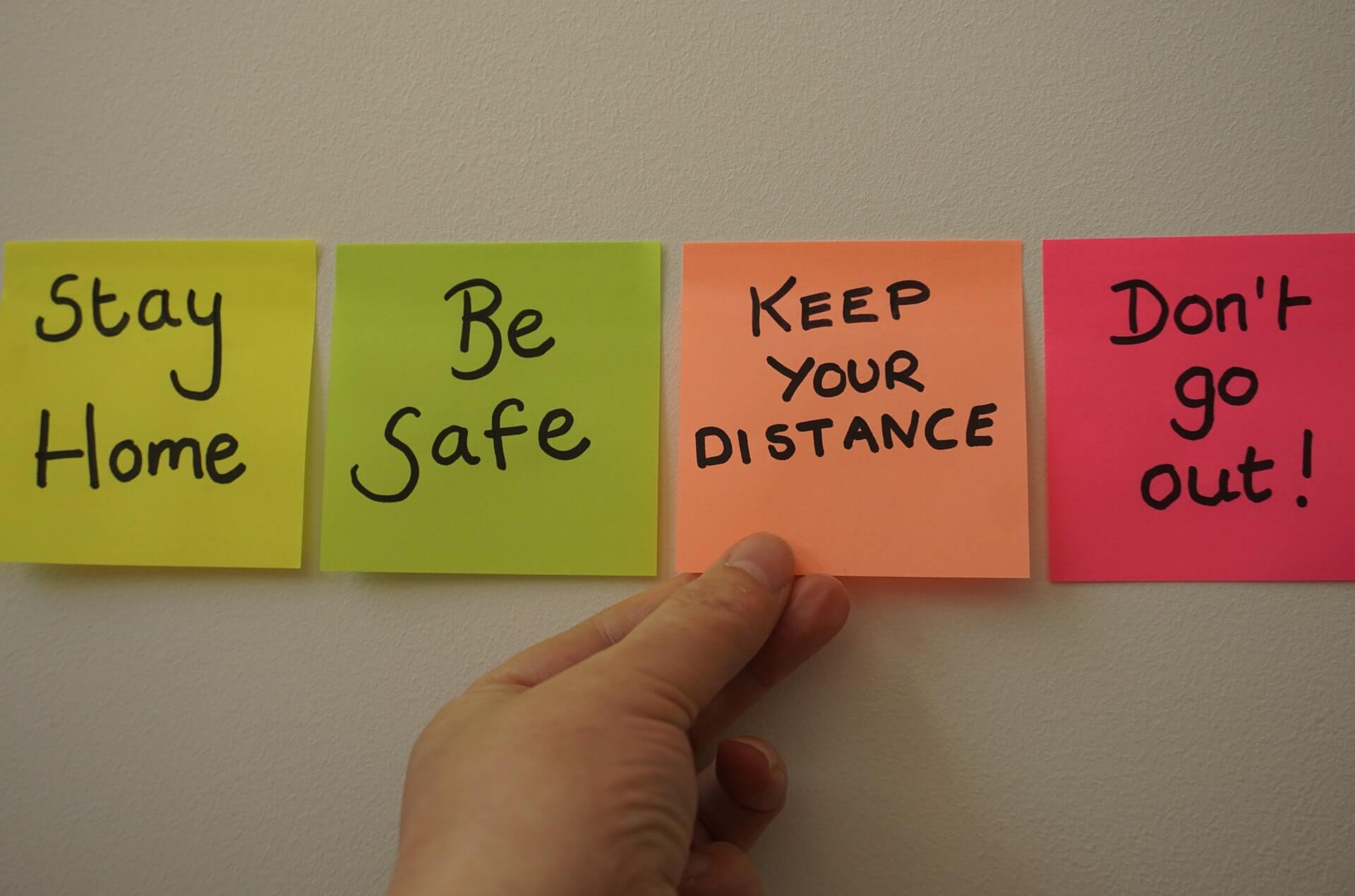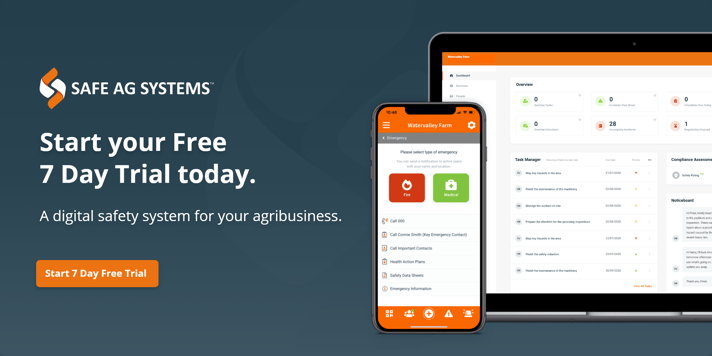The Coronavirus (COVID) pandemic has affected the way we live and work. It shouldn’t come as a surprise that it has started to affect how we interact with one another or our mental health. With a mixture of rules and restrictions across Australia, from state to state, it is ok to feel stressed or anxious, but don’t let feelings of distance or isolation consume you. We know it’s easy to forget sometimes, but we’re in this together! During these challenging times we want to help support you to continue the focus on mental health and wellbeing.
Impacts facing Agriculture
Many may think that COVID hasn’t impacted the agricultural industry since farming takes place mostly outdoors and automatically comes with some form of social distancing, whilst this may be true, farming communities are still feeling the impact physically, economically, and mentally. Facing uncertainty has become a part of the job description for Australian farmers, having faced droughts, bushfires, trade wars, and now a global crisis.
With a lack of skilled and experienced workers to assist with harvest and pack produce, this poses a risk to the health and safety of workers that form part of the supply chain. These safety risks can come in the form of inexperience and lack of training, as well as fatigue and even heat exposure.
Fatigue can become a contributing factor due to a number of reasons; stress can impact a person’s ability to get a good sleep whilst increased workloads and longer shifts, possibly impacted by rostering and overtime, could lead to a burnt-out workforce.
Mental Health Support
Did you know that Work, Health and Safety laws cover risks to your workers psychological health as well? For many workers, COVID can present many psychological workplace hazards. These risks and hazards most likely centre around exposure. Exposure could mean the virus itself, exposure to stigma’s associated with COVID, exposure to environmental conditions or lack of social interactions, which can all result in emotional distress. SafeWork Australia suggest you manage workplace psychological risks and injuries in the same way you manage physical ones.
Step 1: Identify
This involves talking and listening to your workers about concerns they may have. Communicate and reassure them of the steps you are taking, show them support and acknowledge how they feel.
Step 2: Assess
Have you reflected on what may happen if an exposure in the workplace does occur? Consider creating a COVID safety management plan. Include topics such as training on the correct use and disposal of face coverings and PPE.
Step 3: Control
Introduce risk controls, this may involve rotating worker tasks, limiting the numbers of workers in relevant areas and adjusting workstations to allow for social distancing.
Step 4: Review
Once you have implemented your risk controls, you should evaluate and review them as necessary. If these controls are not eliminating or reducing the risk of psychological hazards a new approach may be required.

Farm visits during lockdown – yes or no?
Lockdowns seem to be growing in regional areas, they present huge challenges for people, both logistically and mentally. It’s fortunate that agriculture is seen as an essential service – rightfully so too as we feed and clothe Australians and the world.
It’s interesting observing the city vs country divide – city people trying to escape to regional areas, thinking they have the right to move freely in the country and potentially jeopardising the health of locals. Yet regional areas need the local café, pub, supermarket, etc. to survive so they need customers. While no one wants to stop movement and visitors to any region, it would be fair to say we all want to stop the spread of COVID-19 and get back to some kind of normal.
Is it essential?
If you have people coming to visit your property during lockdown, perhaps consider if their visit really is essential or not and consider alternatives. Rescheduling is quite reasonable, as is asking for the visit to be done virtually instead. Ask yourself if you really need that person from the city coming on farm now, especially if they are coming from a hotspot like Sydney or Melbourne. Of course, we need vets, agronomists, suppliers, etc. as they are essential to the wellbeing of our livestock and crops which has a direct impact on our income. Other business needs could perhaps be managed virtually as there isn’t really a need to be on-farm. If they are coming from a hotspot, do you really want them on your farm, in your home and in your local community right now?
Whether you agree or disagree with the current approach of managing COVID-19, one thing that is undisputed is that the virus doesn’t move – people move the virus. Reduce movement and interaction and you reduce the chance of COVID spreading in your community. When everyone gets this right, it should mean less restrictions and state borders sooner.
Keeping everyone on farm safe
At Safe Ag Systems, we love nothing more than to come on farm and visit our clients, new and existing. However, as we support, but don’t work directly in agriculture, we would find it unrealistic to say we are ‘essential workers’. That doesn’t mean safety isn’t vitally important – it’s critical right now with the risk of COVID-19 on top of the usual risks on farms which hurt and kill too many of our community.
Safe Ag Systems doesn’t want to put anyone at risk by travelling into and through regional areas that are in lockdown. So, we continue to be agile in how we support and service our clients by phone and by virtual meetings. When it’s safe for us to resume on-farm visits, we look forward to seeing you again at the kitchen table for a cuppa and a chat.
If you or someone you know needs support, there are a number of mental health and wellbeing support services available in Australia.
-
Beyond Blue provides a range remote access support services including over the phone on 1800 512 348, web chat and their online community forum.
-
Lifeline are available via phone on 13 11 14, text message on 0477 13 11 14 from 12pm to midnight (AEST) and web chat.
-
Black Dog Institute has number of free online resources to assist with general stress and anxiety. If you are over the age of 18 you can access their free online clinic.
-
Kids Helpline is available for youths under the age of 25 over the phone on 1800 55 1800, email: counsellor@kidshelpline.com.au and via web chat. Their website also features a number of helpful videos around quarantine, family, school and work.
-
Headspace has also created resources to assist young people affected by stress related to COVID. This includes tips to maintain a healthy headspace.
Topics: Safety Management System
Disclaimer: Content on this website may be of relevance to users outside of Australia, but content links and examples are specific to Australia. Please check with your local authority for your country and industry requirements.











